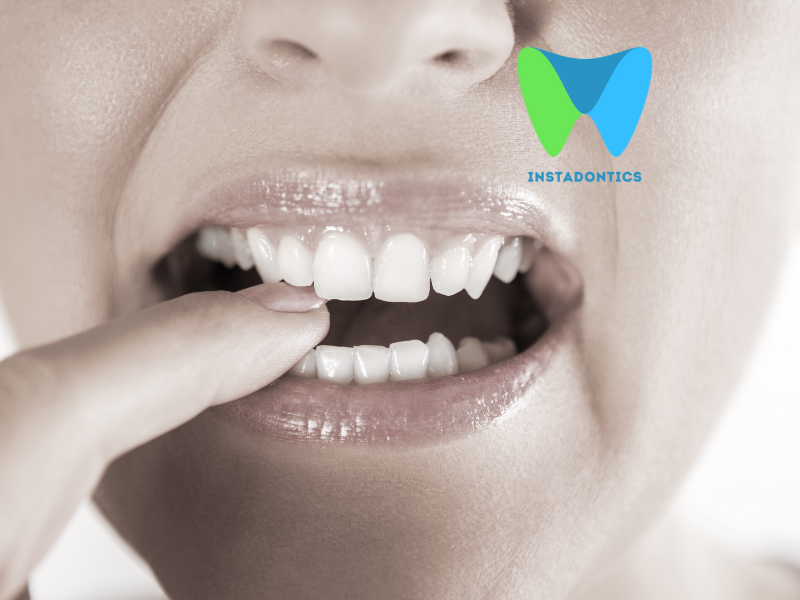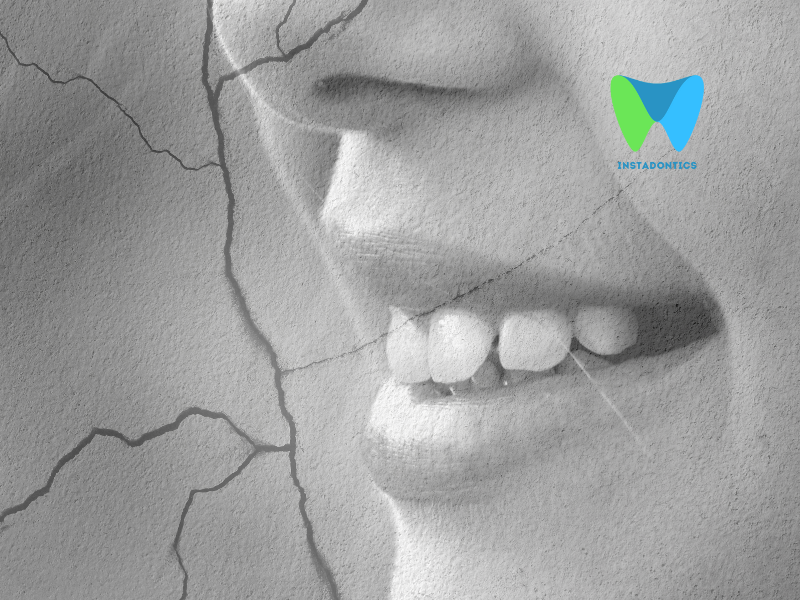Bruxism is a common yet often overlooked condition characterized by the involuntary grinding, clenching, or gnashing of teeth. While it can occur during the day (awake bruxism) or at night (sleep bruxism), many individuals are unaware that they are grinding their teeth until they experience symptoms or are informed by a dental professional. This article will delve into the causes, symptoms, diagnosis, and treatment options for bruxism to provide a comprehensive understanding of this condition.
What is Bruxism?
Bruxism is defined as the habitual grinding or clenching of teeth, which can happen unconsciously during sleep or while awake. It is classified into two main types:
- Sleep Bruxism: This occurs during sleep and is often associated with other sleep disorders, such as sleep apnea. Individuals may not be aware that they are grinding their teeth at night, and it often requires a partner or family member to notice the sounds or signs.
- Awake Bruxism: This type occurs when a person is awake and may be triggered by stress, anxiety, or concentration. It often manifests as clenching the jaw or grinding teeth during periods of focus or tension.
Causes of Bruxism
The exact cause of bruxism is not fully understood, but several factors are believed to contribute to its development:
- Stress and Anxiety: Emotional factors are among the most common triggers for bruxism. High-stress levels, anxiety, and frustration can lead to muscle tension and teeth grinding as a coping mechanism.
- Sleep Disorders: Conditions such as sleep apnea, insomnia, or other sleep disturbances can increase the likelihood of bruxism, particularly during sleep.
- Misaligned Teeth or Jaw Issues: Dental problems, such as malocclusion (improper alignment of teeth) or jaw misalignment, can result in bruxism as the body attempts to find a comfortable bite.
- Lifestyle Factors: Caffeine and alcohol consumption, smoking, and certain medications (such as antidepressants) can exacerbate bruxism.
- Genetics: There may be a genetic predisposition to bruxism, as it can run in families.
Symptoms of Bruxism
Bruxism can lead to a variety of symptoms, some of which may be subtle and easily overlooked. Common symptoms include:
- Teeth Grinding Sounds: This is often the most noticeable sign, especially for those who sleep next to someone with bruxism. The grinding noise can be loud enough to disturb others.
- Jaw Pain and Discomfort: Individuals may experience soreness or stiffness in the jaw muscles, particularly upon waking in the morning.
- Headaches: Tension headaches, often located in the temples or forehead, can result from the strain on facial muscles caused by grinding.
- Tooth Wear and Sensitivity: Chronic grinding can lead to enamel wear, increasing tooth sensitivity and potentially leading to cavities or other dental issues.
- Facial Pain: Some individuals may experience pain in the face, neck, or shoulders due to the strain on muscles from clenching.
- Earaches: The proximity of the jaw muscles to the ear can cause referred pain, leading to sensations similar to earaches.
Diagnosing Bruxism
Diagnosing bruxism typically involves a comprehensive evaluation by a dental professional. The process may include:
- Medical and Dental History: The dentist will ask about your medical history, symptoms, and any potential contributing factors, such as stress levels or sleep disturbances.
- Physical Examination: The dentist will examine your mouth for signs of bruxism, including worn-down teeth, jaw tenderness, and any signs of temporomandibular joint (TMJ) disorders.
- Dental X-rays: In some cases, dental X-rays may be taken to assess the condition of the teeth and jaw, helping to identify any structural issues that may contribute to bruxism.
- Sleep Studies: If sleep bruxism is suspected, a sleep study may be recommended to monitor sleep patterns and identify any related sleep disorders.
Treatment Options for Bruxism
Treating bruxism often involves a multi-faceted approach tailored to the individual’s specific needs. Treatment options may include:
- Custom Night Guards: One of the most common treatments for sleep bruxism is the use of a custom-fitted night guard. This dental appliance is worn while sleeping to protect the teeth from grinding and reduce jaw strain.
- Stress Management Techniques: Since stress and anxiety are significant contributors to bruxism, implementing stress reduction techniques such as mindfulness, meditation, or yoga can be beneficial. Cognitive behavioral therapy (CBT) may also be effective in addressing anxiety-related bruxism.
- Dental Corrections: If misaligned teeth or jaw issues are contributing to bruxism, dental treatments such as orthodontics, crowns, or reshaping of the teeth may be recommended.
- Medications: In some cases, medications may be prescribed to help manage bruxism. Muscle relaxants, anti-anxiety medications, or even Botox injections to relax the jaw muscles may be considered.
- Lifestyle Modifications: Reducing caffeine and alcohol intake, quitting smoking, and maintaining a healthy sleep routine can help minimize bruxism symptoms.
Bruxism | Causes, Symptoms, Diagnosis, & Treatment
Related: The Hidden Dangers of Nighttime Teeth Grinding
FAQs
1. What is bruxism?
Bruxism is the medical term for grinding, clenching, or gnashing your teeth, often unconsciously. It can occur during the day (awake bruxism) or at night (sleep bruxism).
2. What causes bruxism?
The exact cause is not always clear, but common factors include:
- Stress, anxiety, or tension.
- Misaligned teeth or an abnormal bite.
- Sleep disorders like sleep apnea.
- Lifestyle factors (e.g., caffeine, alcohol, smoking).
- Certain medications or medical conditions.
3. What are the symptoms of bruxism?
Common symptoms include:
- Worn-down, flattened, or chipped teeth.
- Jaw pain or stiffness.
- Headaches, especially in the morning.
- Earaches or facial pain.
- Disrupted sleep (for you or your partner due to grinding noises).
4. How is bruxism diagnosed?
A dentist can diagnose bruxism by:
- Examining your teeth for signs of wear.
- Asking about symptoms like jaw pain or headaches.
- Checking for muscle tenderness or TMJ issues.
- In some cases, recommending a sleep study.
5. Can bruxism cause long-term damage?
Yes, untreated bruxism can lead to:
- Severe tooth damage or loss.
- Jaw disorders (e.g., TMJ dysfunction).
- Chronic pain in the jaw, neck, or face.
- Gum recession or bone loss.
6. How is bruxism treated?
Treatment options include:
- Night guards to protect teeth from grinding.
- Stress management techniques (e.g., therapy, meditation).
- Correcting misaligned teeth with orthodontics.
- Treating underlying sleep disorders.
- Medications (e.g., muscle relaxants) in severe cases.
7. Can bruxism go away on its own?
In some cases, mild bruxism may resolve without treatment, especially if it’s stress-related. However, chronic bruxism often requires intervention to prevent damage.
8. Is bruxism common in children?
Yes, bruxism is common in children, especially during teething or developmental stages. Most children outgrow it, but consult a dentist if it persists or causes pain.
9. Can stress cause bruxism?
Yes, stress and anxiety are leading causes of bruxism. Managing stress through relaxation techniques, therapy, or lifestyle changes can help reduce symptoms.
10. Are there home remedies for bruxism?
While professional treatment is best, you can try:
- Reducing stress through yoga or meditation.
- Avoiding caffeine and alcohol before bed.
- Applying a warm compress to relax jaw muscles.
- Practicing proper jaw alignment and relaxation exercises.
11. Can bruxism be cured?
There is no definitive cure, but symptoms can be effectively managed with night guards, stress reduction, and other treatments.
12. How can I prevent bruxism?
Preventive measures include:
- Managing stress and anxiety.
- Avoiding stimulants like caffeine.
- Practicing good sleep hygiene.
- Regular dental check-ups to catch early signs.
If you suspect you have bruxism, consult a dentist for a proper diagnosis and personalized treatment plan.
Bruxism is a prevalent condition that can lead to significant dental and health issues if left untreated. Understanding the causes, symptoms, and available treatment options is essential for managing this condition effectively. If you suspect you may be experiencing bruxism, it is crucial to consult with a dental professional for a comprehensive evaluation and personalized treatment plan. With appropriate intervention, individuals can find relief from symptoms, protect their dental health, and improve their overall quality of life.



